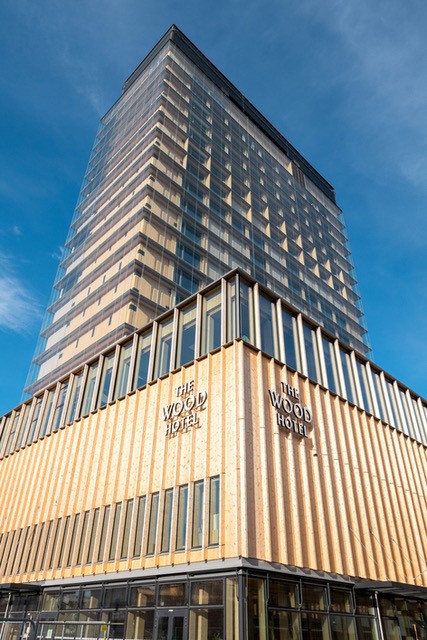The Sustainable Markets Initiative has announced the launch of a Hospitality and Tourism Task Force to promote the industry’s transition to a net-zero future through tangible, scalable and practical solutions for a more sustainable future.
The task force, launched at the COP15 Biodiversity Conference in Montreal, Canada, earlier this week, will be co-chaired by the Sustainable Hospitality Alliance’s CEO Glenn Mandziuk and Xenia zu Hohenlohe, the co-founder of Considerate Group, a hospitality industry consultancy that advises clients on how to achieve greater sustainability.
“The Sustainable Markets Initiative enables us to look beyond our industry and be part of a coordinated private sector effort to accelerate the drive towards lasting, sustainable business practices,” Mandziuk said.
“The hospitality industry has wide-reaching value and supply chains, encompassing finance, transport, energy, agriculture and construction among many others, generating enormous potential for cross-sector influence and collaboration.”

In a 2017 report, the Sustainable Hospitality Alliance estimated per-room emissions would need to be cut by 66% of 2010 levels by 2030 and by 90% by 2050 if it is to play its part in keeping global warming below 1.5 degrees Centigrade.
In a new report published last month by the Travel Foundation was blunt: “current strategies that rely solely on carbon offsetting, technological efficiencies and biofuels are woefully inadequate,” it said.
“It’s clear that business as usual for tourism is neither desirable nor viable,” said Menno Stokman, Director at the Centre of Expertise Leisure, Tourism & Hospitality, which contributed to the report.
“Climate impacts are already here, increasing in frequency and severity, with monumental costs for humanity and the environment that affect tourism more than most other sectors,” he said.
Hotel operations are responsible for about 1% of global carbon emissions, although that does not include “embodied carbon” — the emissions created in constructing and reconstructing hotels — and given the increasing demand for remote travel, the industry also has an outsize impact on delicate ecosystems.
And sustainability is rapidly becoming a commercial as well as an environmental imperative. Booking.com’s Sustainable Travel Report 2022 collated responses from over 30,000 travelers: 81% said sustainability was important to them; 78% intend to stay in a sustainable property at least once in the coming year, and 53% are determined to make more sustainable travel choices than they were a year ago.
The Sustainable Markets Initiative is an umbrella group launched in 2020 to bring together private-sector CEOs as a ‘coalition of the willing’ to find ways to generate long-term value through the integration of natural, social and financial capital.
The complete list of the members of the SMI task force will be unveiled at the ITB show in Berlin in March next year.
